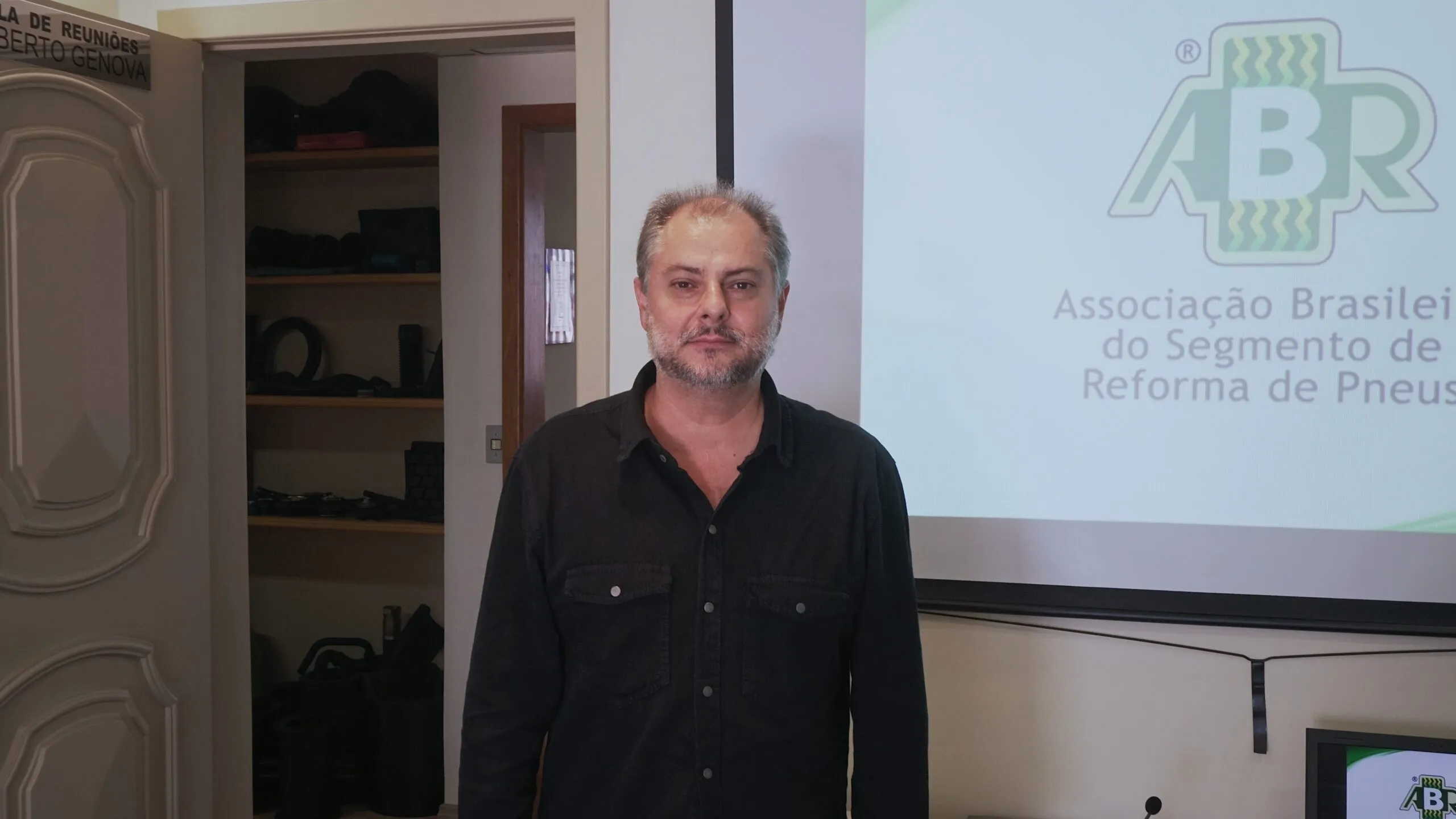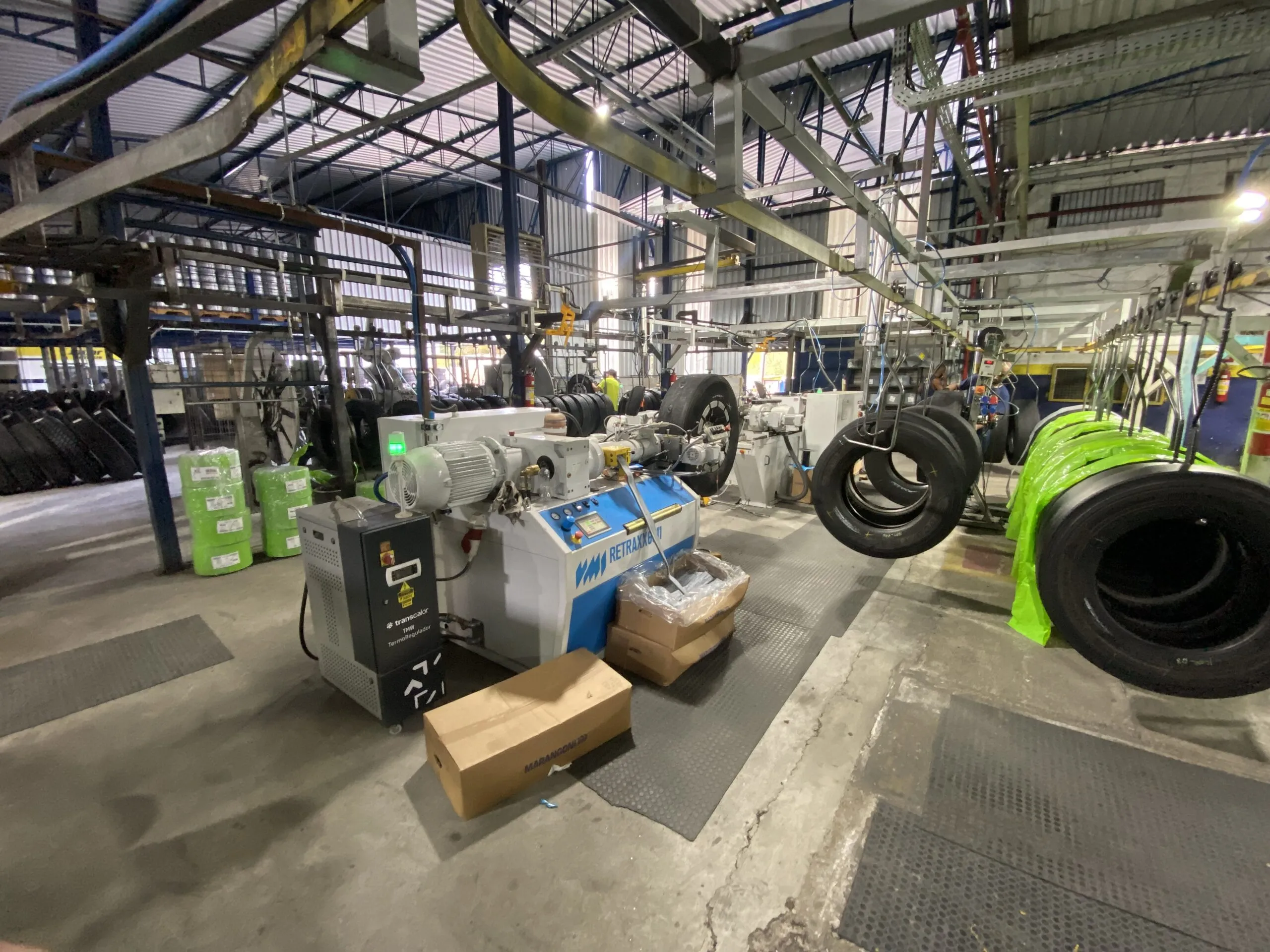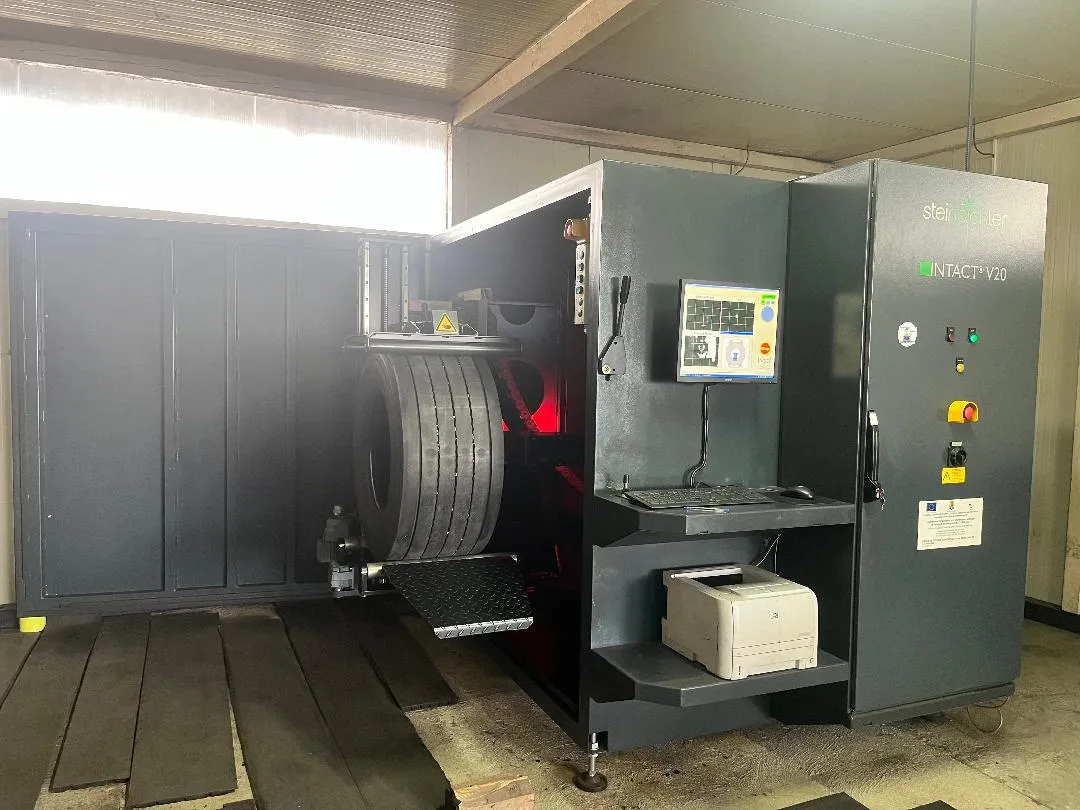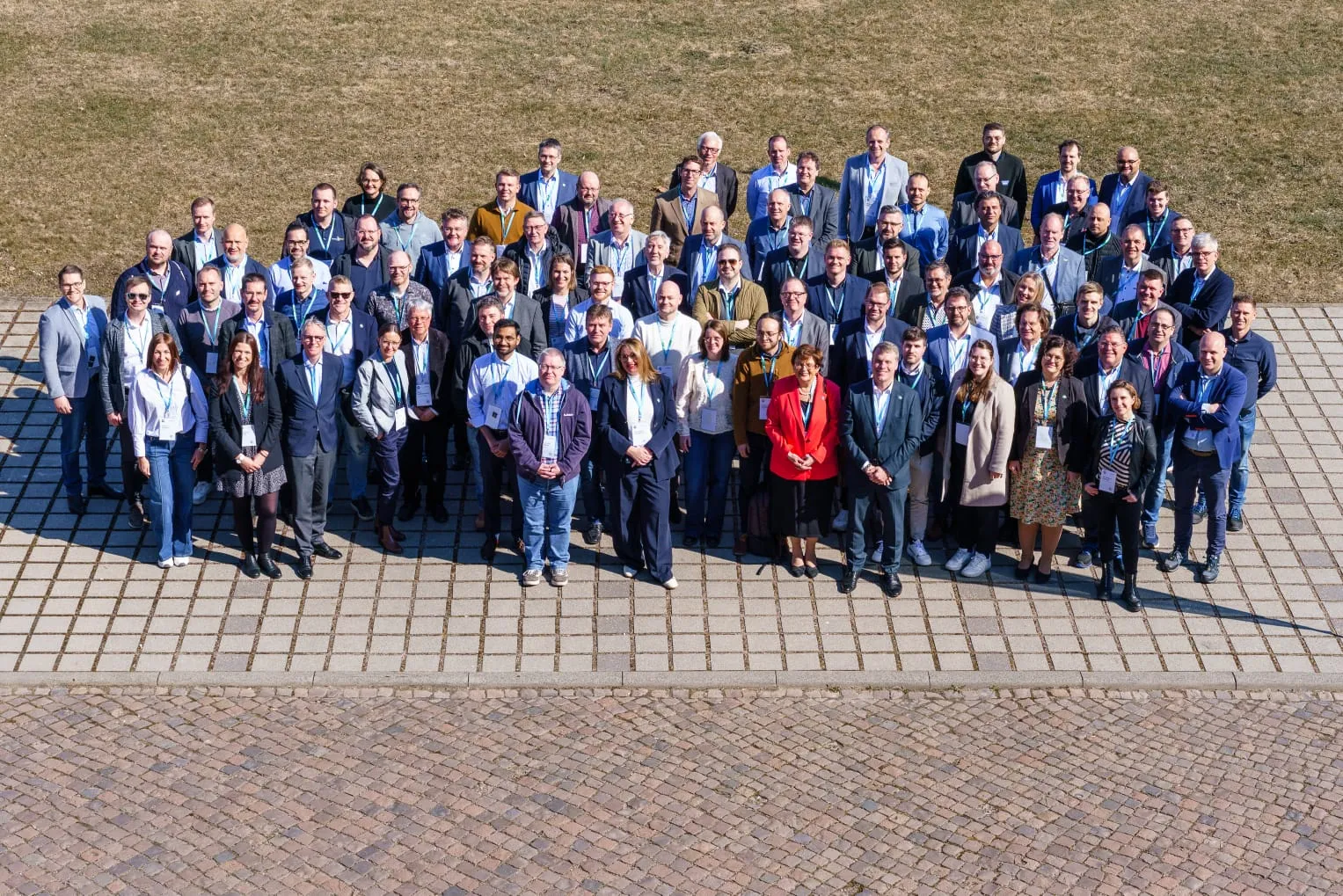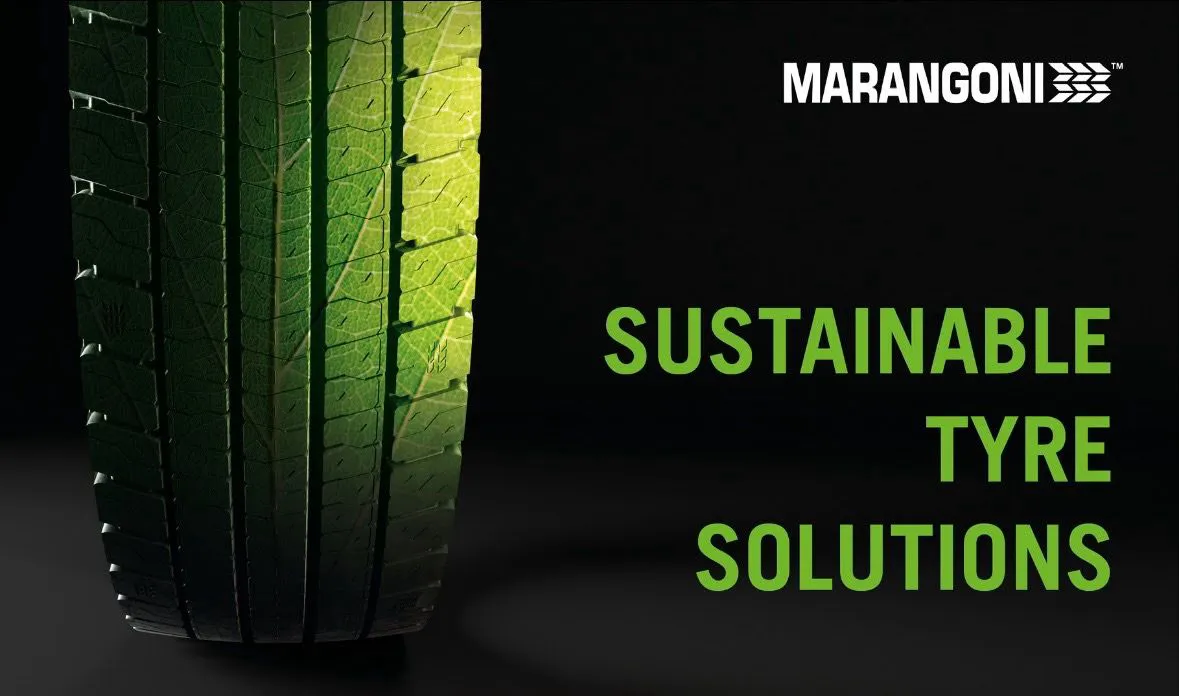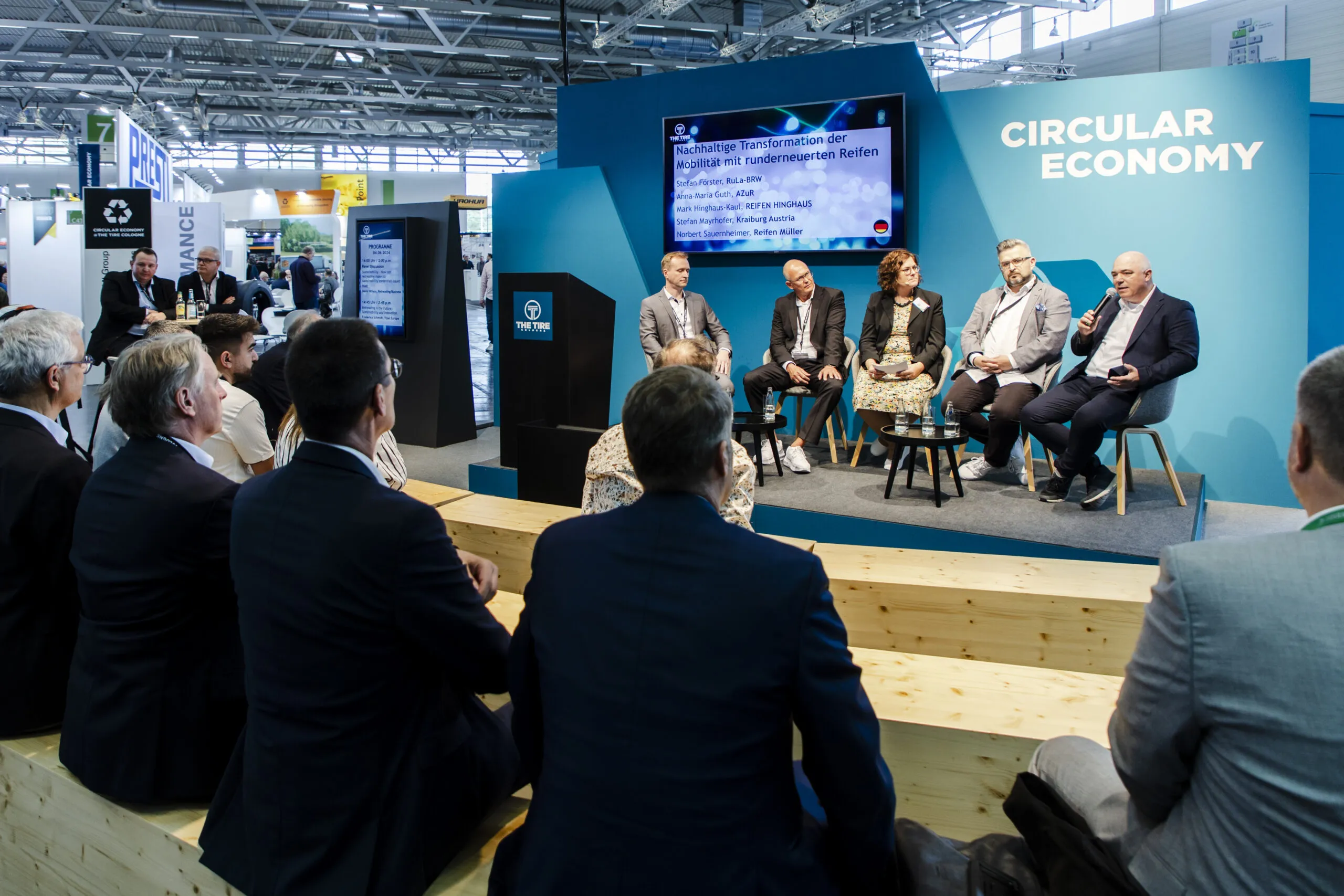Our Brazilian correspondent Arthur Rivelo, recently had the opportunity to interview the President of the Brazilain Retreaders Association ABR about the current state of the Brazilian market and the challenges faced by the Association. Here is his report.
Interview with Roberto Oliveira – President of Brazilain Retreaders Association ABR
We were welcomed by the Brazilian Association of the Tyre Retreading Segment, or ABR, in their meeting room, which is part of an office shared with the regional association and the union of the same industrial segment. Located in the nerve centre of the city of São Paulo, the view from the room goes from one side of Paulista Avenue to the other. On its sidewalks flows a considerable volume of the country’s money. When presenting the space, the president’s adviser smiles and comments, also looking out the window: “It’s a beautiful view, isn’t it?”.
Roberto Oliveira is a committed man. President of ABR and ALARNEU, the Latin American Association of the Retreading Segment, he is aware of the challenges faced by a segment that seeks more and more respect and space in the market. To understand his responsibilities, he says we should look first inwardly. With almost 1,500 members on its national association, Brazil serves as a great laboratory to understand this dynamic of forces. Taking into account the continental proportions of the country, the ABR must face the distances, the regional particularities of legislation and the market, the amount of data to be collected and analysed. Inevitably, it also faces the crisis.
The Brazilian retreading industry, after presenting a drop in revenues in the past two years, projects a timid recovery of 3.5% for 2017, reaching 1.77 billion Reais gross revenue. Other indicators, such as investments in the sector and production of retreaded tyres, follow the same trend. “Recent figures are an x-ray of Brazil’s own GDP” (which is expected to grow 0.3% this quarter), says Roberto, arguing that “the concept of tyre retreading is not an input of opportunity, but rather a necessary input” for the functioning of the domestic market as a whole. Investments in the sector fell from 82 million Reais in 2013 to 55 million in 2016, a decline that has among its factors the underutilisation of installed capacity, something around 45% to 50% of the total.
If the scenario frightens at first, how then does one face it? Following the strategy of recognising the retreading industry as a green industry, important to reduce the impact of oil use in the environment, Roberto resorts to figures and argues that “we have prevented the emission in the country, in the last 10 years, of 14 billion cubic metres of CO². Such an argument opens the doors for us to talk to any government body and plead for greater recognition of the sector in society. (…) In the past, we had to beg for a meeting, today we are invited to attend them”. This rhetorical trump card puts ABR in the game, but its work does not get any easier. In addition to the antagonism of new tyre manufacturers, the current political instability in the country poses an unpredictable challenge. “Just so you have an idea, late last year I was in a public hearing and I appeared in a photo next to a senator; two months later, he was like this”, the president laughs, holding out his hands as if they were handcuffed.
Taking advantage of the open doors, for four years ABR has been part of a permanent forum of the Ministry of Development, Industry and Foreign Trade to consult with the private sector. Progress is being made in current disputes, such as a project to reduce rates (PIS, Cofins and ICMS) that the association is preparing to negotiate with the government in the future in order to relieve the sector. About 25% of its total revenue is earmarked for taxes. At the same time, ABR is taking notorious actions in the discussion of Constitutional Amendment nº87/2015 and Regulatory Norm nº12. The first one is a change in the interstate tax on goods and services that was mainly proposed to regulate e-commerce, but ultimately affected the cost of the retreaders’ raw material. If the producers previously only had to pay the tax of his own state, they now also have to pay any additional difference in the value of the tax of the state for which he sells his product to. This cost obviously falls on the retreaders’ account, explains Roberto: “we are fighting this, because this will increase the final cost of retreading. (…) Retreaders from a state with a lower tax are able to make unbalanced outside competition against local retreaders from a state with a more expensive tax”.
The second one is a general norm that describes principles and technical measures for the protection of workers who uses machines and equipment. It has been worrying the businessmen of the sector since it took effect. The president elaborates: “the RN nº12 is a general rule and is not properly suited for some segments. For three years we have been developing an annex for our sector called ‘elastomers and the like’. In this work the main machines were mapped (…) and a document was developed and fowarded to the Ministry of Labour in order to create a specific regulation for the sector, taking away the subjectivity present in the general norm that could cause the business owners, when receiving the visit of an inspector, to be misinterpreted for what was done with good intentions in terms of security and eventually having their companies interdicted or assessed, maybe even improperly. The meeting in Brasilia will be in August.” ABR’s effort to gain ground over the legislative dispute is a long and arduous process: “The work of an association is unjust and unappreciated. I usually say that we build many rain gates, and such work is not seen, it’s not like the politicians who like to build bridges because everyone sees and values them. We do a lot of underground work”.
ALARNEU’s challenges follow the same trend of political effort. As described by its president, it is “a cooperative of technology and information that comprises the retreading industry of all Latin America, where 64% of the production is made by Brazil, which contributes more than it receives because it has the most developed legislation and data system of the sector. The efforts are therefore to homogenise, even unify, the laws of the associated countries and defend the local market against external agents – especially the Asian ones – who have low quality, low price and high competitiveness. The immediate action has been to strengthen the quality control mechanisms of the imported raw material. The long-term solution, however, will be to invest in technology.
Investment in research and development is historically timid in the tyre retreading business. “There are machines operating in the market for over 80 years”, reveals Roberto, adding that one of the important activities carried out by ABR is the biennial fair PneuShow, with its next edition scheduled for 2018: “We are now talking to Senai (National Industrial Apprenticeship Service) to bring the concept of industry 4.0 – as a project that Senai has, together with the Ministry of Development, Industry and Foreign Trade, to support industrial technological evolution – into our fair, so we can start planting this seed, so that it becomes a matter for discussion. This may come to be the dominant theme”. Within the vanguard thinking of the tyre industry, there are those who argue that the rubber tyre will remain one of the irreplaceable items of humanity, while others already propose new alternatives to end the dependence of rubber or the concept of the tyre itself. It will be up to the committed agents of the sector to take the next step or watch the end of their activity.

